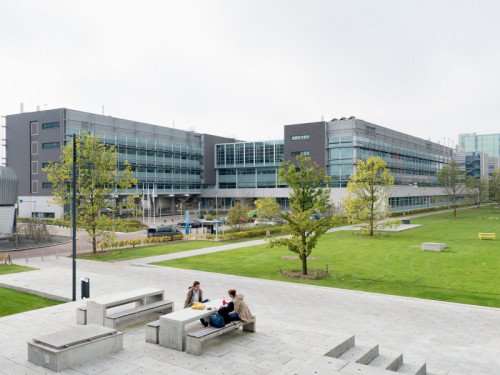An international group of ten Electrical and Electronic Engineering students won a prize for the best 4th year project at the Engineering in Practice symposium. They received an assignment from Cellcius, a company that is working on heat batteries to store thermal energy in houses. Cellcius asked them to develop a system for the end user to measure and control the heat battery’s charge status. Such a system does not exist yet and it was the first time that a sensor system was created for heat batteries. The students built and tested five different sensor systems which can measure how much energy is charged in a battery. Finally two of the five systems were successful and are recommended for future development. “Considering current energy prices, we want such batteries at home as soon as possible”, according to the jury.
The students created the five different systems by using different approaches. They looked which parameters inside the system change when energy changes. The two successful parameters were absolute humidity and electrical conductivity. In one system relative humidity and temperature inside the system was measured and accordingly converted into absolute humidity value (including pressure, air flow). The other concept took changes in ability of material inside the battery (salt) into account to conduct electricity. The two systems will be further developed in the future. For consumers those kind of systems can be attractive to store extra energy when the energy is economically priced.
Communication issues did not occur in the group consisting of five Dutch and five international students from Italy, Bulgaria, Romania, Kazakhstan and Latvia. The most import challenges the students were facing were planning and lack of available information. As the domain of thermal batteries is quite new, only little data from previous research was available. Besides this, students had to work hard in the beginning to get decent conclusions in order to have the prototypes ready on time for the final stage. “Believing in your idea is important” according to Latvian student Aleksejs Tarasovs. “It gives me a good feeling that Fontys is providing a project in cooperation with a company that really adds value to the world”, Almira Sandykbayeva from Kazakhstan adds.
Fontys and Cellcius will continue the development of the sensor within the iHeat@home project of the organisation Eindhoven Engine. Eindhoven Engine accelerates innovation in the Brainport Region through challenge-based research. The sensor will be crucial for an efficient use of the heat battery, with major impact on the gas consumption in European houses.


